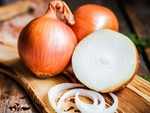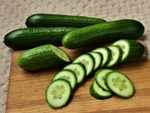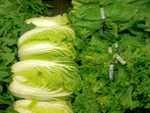Have you been storing your groceries wrong? Find out here
Last updated on - Nov 22, 2019, 15:16 ISTShare fbsharetwsharepinshare
21/30Grains and pasta


All the uncooked pastas and grains should always be stored in airtight glass or plastic container. Be it lentils, rice, oats or quinoa, keep them sealed with more than just a half open and flimsy box. It's because common household pests like bugs and mice can easily crawl into such containers. Also excess moisture from the surrounding air can cause the item to spoil quicker than usual.
Photo credits: Google images
22/30Avocado


Unripe avocados should be kept out on the kitchen counter at room temperature. But if you've cut them into halves and used a little of it, the inside will start to brown in no time as they're ripe and should be used immediately. And if you know you're not going to be able to use the other half of it any time soon, brush the open side with some olive oil and store it face-down in an airtight container. The olive oil will help by acting as a seal that blocks the air from contacting open end of the fruit. You can even brush it with lemon juice as it slows down the oxidation and then wrap the half avocados in a plastic wrap.
Photo credits: Google images
23/30Bananas


Leaving bananas on the counter when they're green gives them a chance to over-ripen in no time. Never keep them in the cool temperatures of the fridge if you want them to ripen as the cool air of the refrigerator stalls the ripening process. Hence, you need to wrap the crown of a bunch of bananas in plastic wrap. This will slow down the release of ethylene gas which ultimately slows down the ripening process.
Photo credits: Google images
24/30Berries


Storing the berries in the same container you get them in without throwing a paper towel beneath the carton will only give them a decreased shelf life. Before you keep your berries in the fridge, rinse them well with light vinegar solution made with eight parts water and one part vinegar. Drain them well before you put them away so that they don't have excess moisture. The vinegar will help in killing the excess bacteria which grows quickly on the surface of berries that can turn the fresh ones into a mush.
Photo credits: Google images
25/30Cherry tomatoes


Now, you might think that cherry tomatoes are supposed to go right in the fridge as soon as you pick them from the grocery store, but that's actually wrong. To keep your tomatoes fresh and taste sweet, you're supposed to store them in a dry space and allow them to ripen naturally. A ripe cherry tomato will have a rather deeper and uniform colour as well as a noticeable shine.
Photo credits: Google images
26/30Onions


For some people, by default all veggies goes in the kitchen, including onions. But rather, onions are supposed to be placed in a mesh bag and stored in a cabinet or pantry where the air is cool and dry. Onions usually last for longer that way, otherwise the moisture in the fridge only allows them to rot. But when it comes to sliced or chopped onions, you can store them in an air-tight container in the fridge.
Photo credits: Google images
27/30Milk


Thinking that milk won't turn bad as long as it's in the fridge is wrong. If you store it in your refrigerator door, you're probably doing the wrong thing. Any items that are stored on the shelves of the refrigerator door are exposed to warm air every time you open it. This can cause your milk to spoil easily. Instead, you can keep the milk and any other dairy products for that matter at the back of your fridge.
Photo credits: Google images
28/30Cucumber


Most of us store the cucumbers in the grocery store's plastic bag in the fridge. But it's not how cucumbers are supposed to be stored. They can be kept at a room temperature. Storing cucumbers is really easy. If they're not sliced, you can simply store them on the counter, but if you slice them, they need to go in the fridge so that they don't dry out or turn sour.
Photo credits: Google images
29/30Salad greens


Leafy greens used for salads such as lettuce, arugula and spinach are sold in plastic bags or boxes. But most people either clip the bag to seal the opened bag or just depend on the box itself to keep the greens fresh. Although, the greens might get soggy too quickly this way as they develop a slimy residue at the bottom of the container if stored this way. Instead, add a paper towel at the top of your box or bag as it will help soak in all the excess moisture and keep the leaves crisp, fresh and dry for a longer time.
Photo credits: Google images
30/30Celery


People who eat celery might not necessarily think twice before throwing their stalk of celery in the crisper drawer. But they should know that storing celery loose or in a plastic produce bag in the fridge can lose its crunch quite easily. So, if you don't wish to have a limping piece of celery, you need to wrap them in aluminum foil. Storing them in a foil will let them have the right kind of moisture to stay hydrated and crisp. Also, the foil will work well as a barrier against ethylene gas that releases out of other pieces in the drawer which can prevent celery from turning foul easily.
Photo credits: Google images



